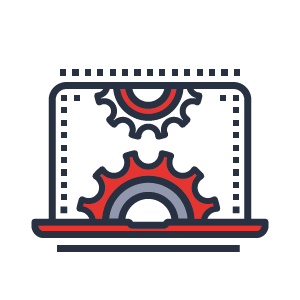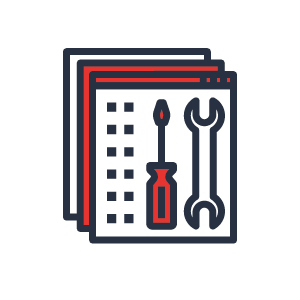
In the rapidly evolving landscape of business technology, organisations are continuously seeking solutions to streamline operations, reduce overheads, and improve productivity.
Harnessing the Power of RPA and Low-Code Platforms
With the onset of the Fourth Industrial Revolution, two emerging technologies have shown incredible potential in transforming the way businesses manage their day-to-day activities: Robotic Process Automation (RPA) and Low-Code workflow automation platforms. Leveraging these technologies, a simple to-do list can be transformed into a powerful workflow management tool that fosters productivity and organisation.
This article explores the transformative potential of RPA and Low-Code workflow automation platforms in redefining the way we approach day-to-day activities, highlighting the benefits, functionalities, and the revolutionary impact they can have on organisational productivity and efficiency.
Harnessing RPA for Streamlined Workflows
RPA is a technology that allows users to configure a “software robot” to mimic and execute repetitive tasks that were previously performed by humans. Implementing RPA to manage your organisation’s day-to-day activities, such as processing invoices, sending out routine emails, or even simply organising tasks, offers myriad benefits.
Firstly, RPA removes the burden of repetitive tasks from employees, freeing them up to focus on more valuable, strategic work. Secondly, it increases efficiency by operating 24/7 without the need for breaks. Moreover, unlike human operators, RPA is not prone to errors arising from fatigue or lack of focus, resulting in increased accuracy and reliability.
Take for instance, the implementation of an RPA-driven to-do list. RPA can be programmed to monitor incoming tasks from various sources such as emails or project management tools, prioritise them based on predefined criteria, and automatically add them to the to-do list. Not only does this reduce the administrative overhead, but it also ensures that no task is overlooked and that every task is optimally prioritised.
Enhancing Productivity with Low-Code Workflow Automation
Low-code platforms have been a game-changer in business process management, enabling businesses to develop and customise their applications with little to no coding. This ease of development accelerates the implementation of solutions tailored to the organisation’s unique needs.
In the context of managing a simple to-do list, a low-code platform can offer a flexible and adaptive workflow. For instance, you can design a process where each task added to the list triggers specific actions, such as assigning the task to an appropriate team member based on workload or expertise, notifying the concerned person, or even setting deadlines and reminders. Such automation not only ensures a more structured approach to task management but also promotes accountability and visibility in the team, leading to improved productivity.
In addition, low-code platforms often come with built-in analytics tools. These tools can provide insights into task completion rates, bottlenecks in the workflow, and employee performance, which can inform decisions to further enhance efficiency and productivity.
The Benefits
Enhanced Efficiency
Through automation, RPA and Low-Code platforms eliminate the manual effort traditionally associated with managing a to-do list. Tasks can be automatically added, categorised, and prioritised, thus reducing the time spent on administrative work and increasing the overall efficiency of your team.
Reduction in Human Error
Even the most meticulous individual can make errors, especially when dealing with repetitive tasks. RPA technology ensures that tasks are processed accurately and consistently, greatly reducing the chance of human error.
Increased Productivity
By automating routine tasks, your team can focus more on strategic, high-value activities. This shift in focus can lead to significant improvements in productivity and innovation.
Scalability
As your organisation grows, RPA and Low-Code platforms can easily adapt to increased workloads without the need for additional resources. This scalability makes them a sustainable solution for managing day-to-day activities as your business evolves.
Customisability
Low-code platforms allow for quick and easy customisation. As a result, your to-do list can be tailored to match your organisation’s specific needs and workflows, thus ensuring that the tool remains relevant and effective as your processes evolve.
Data-Driven Insights
With built-in analytics capabilities, these platforms can provide actionable insights into task performance and completion rates. This data can help identify bottlenecks, inform decision-making, and drive continuous improvement in your workflows.
Summary
In summary, the implementation of RPA and low-code workflow automation platforms can significantly transform the management of day-to-day activities in an organisation. From automating the mundane to facilitating data-driven decision-making, these technologies offer an innovative approach to optimising the humble to-do list. In the digital era, staying competitive means continuously seeking ways to innovate and improve. With RPA and low-code platforms, businesses have the perfect allies to conquer their productivity challenges and thrive in the ever-evolving landscape.
Discover what process automation can do for your business
To fully explore RPA and low-code’s automation potential and how it can benefit your organisation, reach out to our team of automation experts for a tailored demo.







